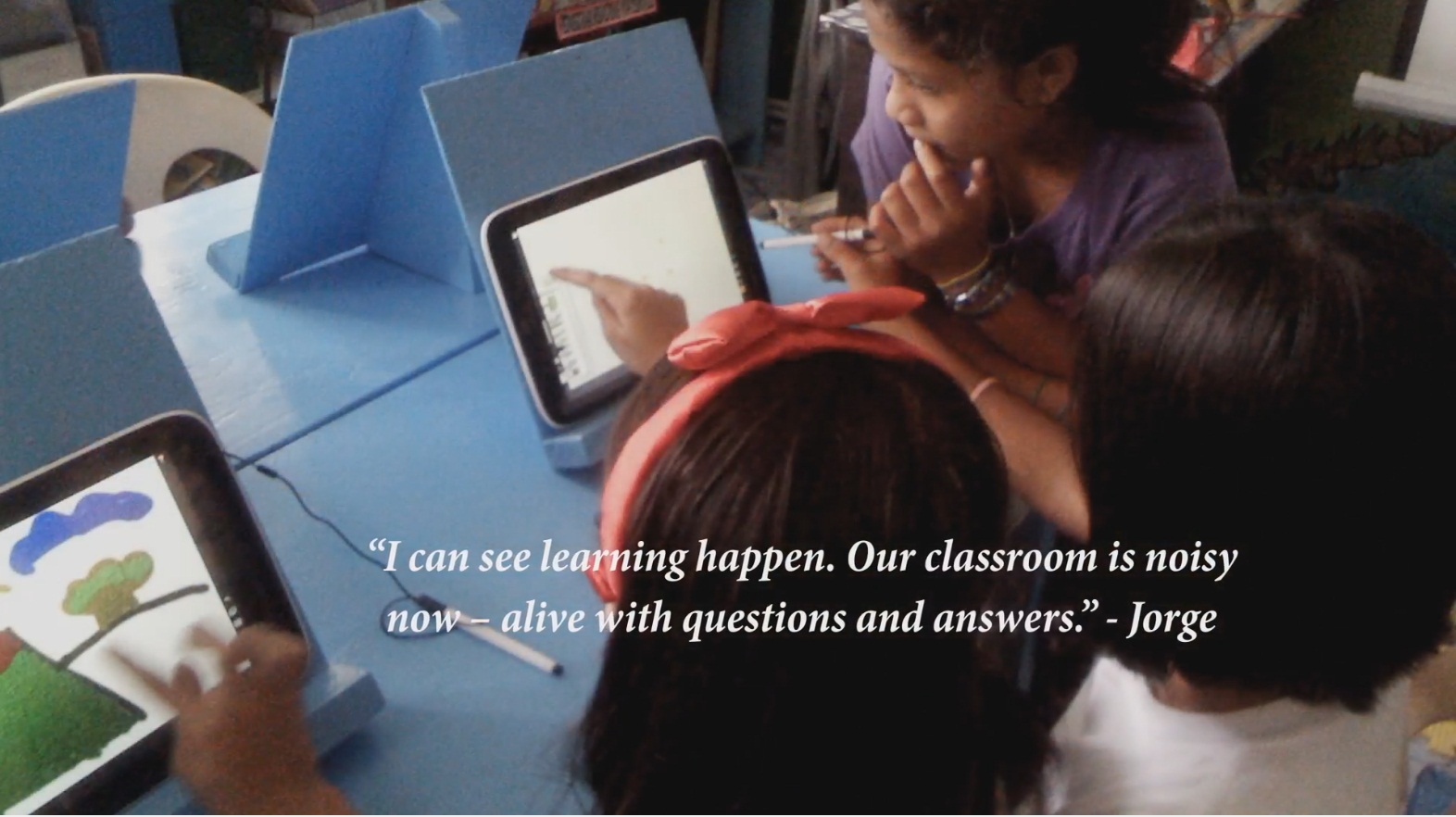Public schools in the country, specifically those in Makati and one in Davao, are using Intel Education Tablets to transform traditional classrooms to interactive learning hubs.
Created specifically for education and to meet students’ needs, the Intel Education Tablet belongs to a complete education solution offering, which includes hardware, software, infrastructure, digital content, services, training, and support.
The tablet features eLearning tools to make classrooms more engaging, including an e-Reader, science exploration and data analysis application, painting tools and accessories, a snap-on magnification lens, and plug-in thermal probe.
Earlier this year, Intel helped transform local classrooms in Davao into interactive learning environments by training teachers and donating 25 Intel Education Tablets and solar power equipment to the Marilog Central Elementary School (MCES).
Marilog Central Elementary School is a public school located at Marilog Proper, Brgy. Marilog, Davao City. It is a rural school, situated in approximately 50 kilometers away from the city proper. The place has no electricity and has poor Internet connectivity.
As a beneficiary of the “Intel Solar Tablet in a Box Project” grant, the school received computer tablets, solar panel, battery charger and the Classroom Cloud Content (C3). Even without Internet connectivity, teachers can access the available resources from the C3 to teach a particular lesson in a subject.
According to MCES principal Zenaida Ayop, the tablets had a tremendous impact on the way their students and teachers viewed education. Majority of the students from MCES hail from different indigenous backgrounds, including Cebuano, Matigsalog, Tagabawa, Diangan, and Bagobo-Manobo tribes. The diverse student population, said some students, made it difficult for them to build relationships with their teachers and with each other.
“Before the grant, the students did not look forward to going to school. A number of them thought that school was not a fun place to be,” said Ayop. “After Intel gave us the Intel Education Tablets and trained our teachers how to use the devices, amazing changes started happening. The classroom became a bigger, friendlier, place – alive with questions and answers. Students are becoming more receptive to our lessons. We are also seeing improvement on their performance and retention of information.”
Public school students in Makati are also benefiting from the Intel Education Tablets. Just recently, the Department of Education in Makati acquired an initial 750 tablets as part of the city’s Php30 million school computerization project for 2013.
“We feel that this initiative is very timely, given the urgent call for engaging and interactive education in the country. We are optimistic that our investment in the Intel Education Tablet will help equip these students – who make up the next generation of the Filipino workforce – for the increasingly digital future and workplace,” said Dr. Dominico Idanan, Superintendent, Department of Education, Makati.
According to Idanan, Makati has 37 public schools, 2,730 teachers and 89,850 students. Idanan plans to give all the city’s teachers a laptop to improve their teaching skills.
Top priority for Intel
“Education remains a top priority for Intel because we believe that young people will be vital to solving global challenges in the future. We also believe that the youth should have access to education that matches both their interests and their skill sets,” said Uday Marty, Managing Director, Intel South East Asia. “There is a need to provide engaging content in a format everyone can understand, otherwise people who haven’t had access to technology in the past will resist advancements. This is why we’re going beyond simply giving devices to students, and focusing more on educational institutions, the content they are producing and assessing, and most critically, the teachers.”
Intel works with various governments and private sector groups to improve education by assisting and contributing to strategic planning for ICT in Education, professional development, development of curriculum standards, content development, evaluation and monitoring. Intel’s initiatives in the education sector have helped more than 12 million teachers improve education for hundreds of millions of students across 100 countries.
“We continue to work closely with our local partners to enable the academe, public sector, educators, and other segments of the market to adopt the technology. We are confident that schools in the Philippines will soon see the benefits of tablet-aided learning,” said Calum Chisholm, Country Manager, Intel Philippines.
Intel Philippines has partnered with education technology solutions provider FELTA Multi-Media Inc. to enable an education transformation initiative in local public schools through Intel Education Solutions (IES).


















































































































